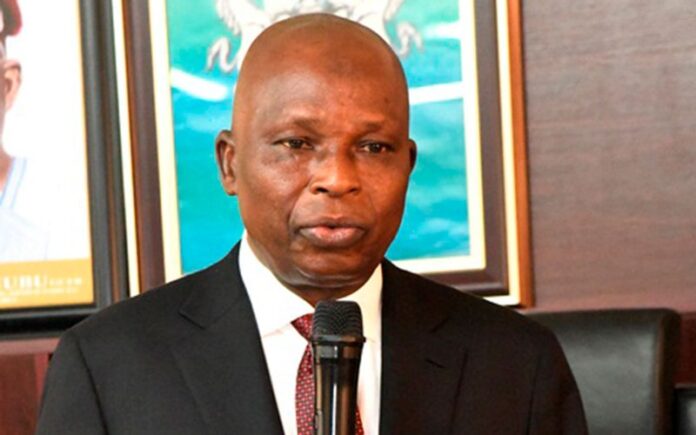The federal government said on Monday that it secured 1,743 convictions from six phases of terrorist trials in the country between 2017 and 2024.
The director of public prosecution of the federation, Mr Mohammed Babadoko, disclosed this at a press briefing in Abuja.
Of the number, he said 742 persons were convicted, 888 discharged and acquitted for want of evidence or other reasons while 92 trials were adjourned.
Giving a detailed breakdown of the convictions and acquittals, Babadoko said in October 2017, 50 were convicted; 203 were discharged/acquitted; and 28 cases were adjourned.
In February 2018, 203 were convicted; 582 were discharged/acquitted while 24 cases were adjourned.
In July 2018, 113 were convicted; 102 were discharged/acquitted; and nine cases were adjourned.
He added that in December 2023, 14 were convicted; one was acquitted; and 10 cases were adjourned.
In July 2024, 125 were convicted; none were acquitted; and 21 cases were adjourned.
In December 2024, 237 were convicted; none were acquitted; and no cases were adjourned.”
According to him, the convictions involved crimes such as terrorism, terrorism financing, and related criminal activities. Sentences ranged from 60 years to life imprisonment.
“It is important to note that within the last year, during this administration, about 515 cases were disposed of, and over 800 individuals — those who had served their terms or were discharged/acquitted at various stages of trial — were moved to Operation Safe Corridor in Gombe for rehabilitation and reintegration, in accordance with court orders and federal government policy,” Babadoko added.
The director of legal services in the office of the national security adviser, Mr Zakari Mijinyawa, stated that the deradicalisation process under Operation Safe Corridor applies only to those whom the criminal justice system has not found guilty of any offence.
“If there is evidence, and you go through the trial and are convicted, you serve your sentence. The whole process of Operation Safe Corridor and the DDRR (Disarmament, Demobilisation, Reintegration, and Rehabilitation) is for those whom the court has found not suitable for imprisonment.
“This is vital information that should be widely disseminated. The media should assist in spreading this message.
“The DDRR process includes psychological evaluations, family reunifications, mental health support, and economic interventions,” he said.
Also speaking, the coordinator of the National Counter-Terrorism Centre, Major Gen. Adamu Laka, recalled notable terrorist incidents in Nigeria, beginning with the October 1, 2010, Abuja attack, and subsequent high-profile incidents like those targeting the UN building and Police Headquarters, perpetrated by Boko Haram under Abubakar Shekau’s leadership.



























































